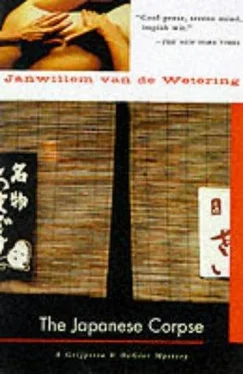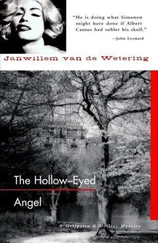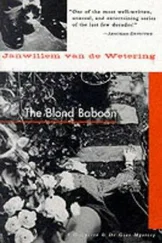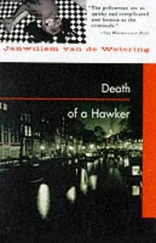Janwillem De Wetering - The Japanese Corpse
Здесь есть возможность читать онлайн «Janwillem De Wetering - The Japanese Corpse» весь текст электронной книги совершенно бесплатно (целиком полную версию без сокращений). В некоторых случаях можно слушать аудио, скачать через торрент в формате fb2 и присутствует краткое содержание. Жанр: Полицейский детектив, на английском языке. Описание произведения, (предисловие) а так же отзывы посетителей доступны на портале библиотеки ЛибКат.
- Название:The Japanese Corpse
- Автор:
- Жанр:
- Год:неизвестен
- ISBN:нет данных
- Рейтинг книги:3 / 5. Голосов: 1
-
Избранное:Добавить в избранное
- Отзывы:
-
Ваша оценка:
- 60
- 1
- 2
- 3
- 4
- 5
The Japanese Corpse: краткое содержание, описание и аннотация
Предлагаем к чтению аннотацию, описание, краткое содержание или предисловие (зависит от того, что написал сам автор книги «The Japanese Corpse»). Если вы не нашли необходимую информацию о книге — напишите в комментариях, мы постараемся отыскать её.
The Japanese Corpse — читать онлайн бесплатно полную книгу (весь текст) целиком
Ниже представлен текст книги, разбитый по страницам. Система сохранения места последней прочитанной страницы, позволяет с удобством читать онлайн бесплатно книгу «The Japanese Corpse», без необходимости каждый раз заново искать на чём Вы остановились. Поставьте закладку, и сможете в любой момент перейти на страницу, на которой закончили чтение.
Интервал:
Закладка:
"Bah," Grypstra said. "Who wants to fire fourteen bullets in four seconds? I don't want to fire one bullet in one year. Why are you so murderous all of a sudden? Are you getting restless again?" He scowled. "We didn't join the police to become heroes, you know. We are supposed to maintain order. How can you maintain order if you fire fourteen bullets in four seconds? The silly thing will be jumping about in your hand and you will blow the head off the old grandmother across the street, trying to do a little shopping, and another bullet is bound to knock a baby out of a pram." Grijpstra's face had reddened and he was waving his arms. "Why don't you go to Africa? There was a story in the paper last night about mercenaries driving their tanks straight through a village, smashing and burning huts and killing everybody in sight."
De Gier smiled and patted Grijpstra's cheek. "I only said I wanted a proper weapon," he said soothingly, "not something made out of cast iron fifty years ago and which is likely to blow apart in my hand."
Grijpstra shook his head as he watched the tall sergeant striding down the long empty corridor. "Our adventurer," he said aloud, "our knight on his eternal quest. Fighting Evil and supporting Good, under the banner of the Goddess of Beauty."
He coughed and looked about him but he was alone. Goddess of Beauty, he thought. De Gier's girlfriend wasn't so beautiful but she was certainly a remarkable woman. Lithe, and with a lovely head on a slender neck, and very quiet. He thought of his own wife and shook his head again. A pudding of flesh addicted to television and creamcakes, and bad-tempered if she could find the energy, which wasn't so often anymore. She was given to staring at him now, nasty stares out of small bloodshot eyes, sunken into the puffy gleaming blubber which covered her skull. He breathed deeply and forced the thought to go away. He could think of his wife when he was with her, which didn't happen so much now.
He would think about the Japanese. He remembered the photograph and saw the thin man again, on his cane chair, peering at the camera's eye. A man dealing in art. A man with a sensitive face, a defenseless face. A man interested in reading, with a stack of pocketbooks next to his chair. He had just come off the plane from Tokyo and he had been reading during the flight, but he was still carrying his books, even when he was in the company of Joanne Andrews, his girlfriend whom he hadn't seen for some time. An attractive girl who was in love with him and who drove his car when he wasn't in Amsterdam. A new BMW, an elegant sleek car, now in the police courtyard with blood on the front seat and a fragment of the victim's skull spattered into the upholstery. He would have been shot from the back seat, maybe while the car was speeding along the highway between Amsterdam and Utrecht. It's a busy highway, Grijpstra thought. A thousand cars a minute, racing along in four lanes. Wouldn't anyone have seen the man slump forward, grabbing his head, oozing blood?
A Japanese, he thought again. What did he know about Japanese? His memory responded with a number of images. He saw a kamikaze pilot diving at an American aircraft carrier, directing his flimsy machine loaded with explosives straight at the gigantic ship's bridge. No chance to survive the impact. A young man with a white strip of cotton wound round his forehead, his teeth showing in a desperate grimace of fear and joy. Kamikaze, he even knew the origin of the word; he had read it somewhere in a magazine article. A holy storm which had destroyed the Korean fleet intent on landing in Japan and conquering the country. Long ago now. What else did he associate with Japanese? Cruelty, yes. Grijpstra's cousin had survived a Japanese prisoner-of-war camp. He had come out as a living toothless skeleton, amazed to find himself alive. Only a small percentage of the original inmates of the camp had survived the brutalities of the guards. Grijpstra's cousin, now a man in his late sixties, a clerk working for the mayor's office, would almost faint if he saw Japanese tourists in the streets of Amsterdam.
What else? Japanese temple music. He had a record at home showing a pagoda on its cover, the several-storied temple set against a background of artfully pruned pine trees. He often played the record, for it contained some unusual percussion, eerie broken sounds evoked by wooden drums, accentuated by sudden shouts out of priestly throats. He had tried to imitate the sounds on his own set of drums and de Gier had helped him, for de Gier had borrowed the record and shared Grijpstra's fascination. Together they had practiced the shouts and yells, and de Gier had even found an instrument, a wooden cucumber on a tripod, the tone of which matched the temple drums. Unusual music from a faraway religion. Buddhism. The commissaris had once told him that Buddhism rests on two pillars, compassion and equanimity. He shook his head. A pilot killing himself while killing hundreds of others, a guard beating prisoners to death, a temple drum splitting the silence. Did he know any more about Japan? He thought of the airport scene and the two lines of obedient human insects, following their guides waving colored flags. And now one of these human insects was dead, with a big hole in his skull and his body hidden somewhere in the Dutch swamp.
He began to walk toward his office. He was going to phone the State Police.
\\\\\ 3 /////
"I am sorry, miss," the Commissaris SAID. "We have no conclusive proof that Mr. Nagai is dead; the blood and skull splinter may belong to someone else, but it looks bad. I am sorry."
Joanne Andrews was looking at him, her lips parted, her tongue licking the cracked skin. She was sitting forward in her chair, her body leaning toward the commissaris' desk. De Gier was standing near the window, studying the street traffic and Grijpstra was slumped in an easy chair well away from the girl. He was observing the girl sadly, holding his knees.
"Yes," the girl said. "It is as I thought. They killed him. I thought they would kill him but he laughed and said they were his friends, that he knew them weU. And even if they wanted to kill him they wouldn't do it here. They would do it in Japan. He was so sure that he convinced me too. But they killed him all the same."
"Who?" the commissaris asked.
She shivered and looked at him. The commissaris was leaning on his desk, his small wizened face peered at her understanding^ as if he was sharing her suffering.
"Who, miss?"
"They will till me too," the girl said. "They look all right but they are ruthless. Two pudgy little men. They are almost square and they look alike, only the one is bald and has a fat neck. They don't walk but they sway and slither, and they are always smiling and bowing. But they are killers. They have been trained properly. I recognized their type when they came to the restaurant and ordered their meal. They often came to the nightclub where I worked in Kobe, not the same men, but men like them. The nightclub belonged to the yakusa and the men were yakusa. Not the yakusa's mind but the yakusa's hands. Tools."
"Yakusa?" the commissaris asked.
"Yes," she said, and nodded gravely. "I am supposed to be afraid of them; all Japanese are, but I am only half Japanese. My father is an American. He was an officer and met my mother during the occupation. I grew up in San Francisco and then they were divorced and my mother went home to Kobe. The checks stopped and she had to work and I worked too. As my English is fluent I was much in demand and the nightclub boss liked me. He was only a small man in the organization, but he was dangerous too. He started as a killer before he was put in charge of the club. I used to be afraid of them but I am not afraid now. I photographed the two pudgy men."
She looked in her bag and put a photograph on the desk top. De Gier and Grijpstra stood behind the commissaris' chair. Grijpstra cleaned his glasses before he put them on. The three policemen took their time studying the snapshot. They saw two men walking in the street, Grijpstra recognized the street; it was close to the big State Library. He saw the trees in the library's garden. The photograph was blurred but not too badly.
Читать дальшеИнтервал:
Закладка:
Похожие книги на «The Japanese Corpse»
Представляем Вашему вниманию похожие книги на «The Japanese Corpse» списком для выбора. Мы отобрали схожую по названию и смыслу литературу в надежде предоставить читателям больше вариантов отыскать новые, интересные, ещё непрочитанные произведения.
Обсуждение, отзывы о книге «The Japanese Corpse» и просто собственные мнения читателей. Оставьте ваши комментарии, напишите, что Вы думаете о произведении, его смысле или главных героях. Укажите что конкретно понравилось, а что нет, и почему Вы так считаете.












